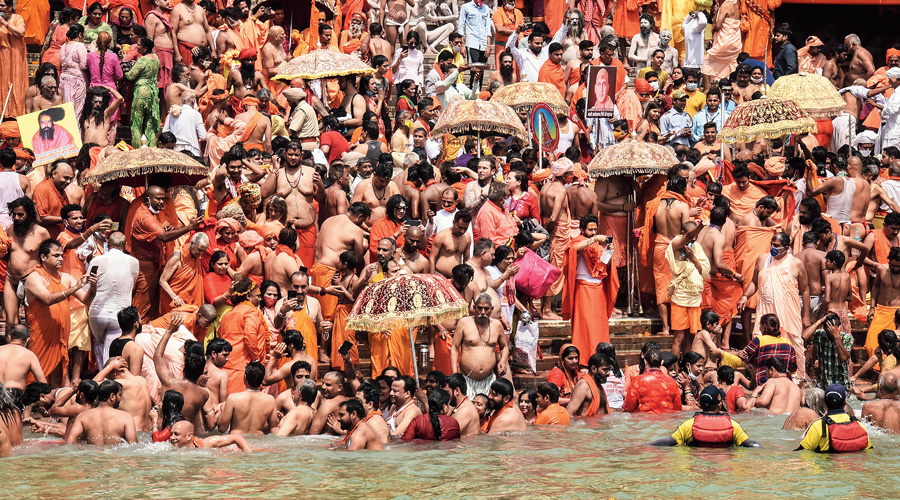Reminders are useful to bring facts back into focus. Such a reminder was recently issued by the Uttarakhand High Court to the state government when the latter contended that the live-streaming of the prayers and rituals at Char Dham is not permitted by the shastras. Rejecting the contention, the high court informed Uttarakhand’s advocate general that India is a democratic country governed not by scriptures but by the rule of law. There is context to this terse exchange of views. Last month, the high court had stayed the state cabinet’s decision to let local people visit the Char Dham shrines, saying that such allowances would be akin to “inviting a calamity” at a time when there are fears of a third wave and the rapid spread of the Delta variant of the coronavirus. The judiciary’s warning is not unwarranted. There is substantial data to indicate that public functions have the potential to be superspreader events. In fact, the World Health Organization linked the surge in India’s Covid-19 cases to religious and political gatherings in the country.
In contrast to the cautionary approach of the judiciary, the Uttarakhand government has been bullish about its reluctance to live-stream rituals. Equally worrying is that neighbouring Uttar Pradesh has given its nod to the Kanwar Yatra from July 25. These are perplexing developments. Several religious occasions, including Ganesh Chaturthi, have been observed online since the pandemic began. Why then should the Char Dham and the Kanwar Yatra be exceptions to this ‘new normal’? The Uttar Pradesh chief minister has assured that Covid-19 protocols would be observed during the yatra; however, there is precedent to suggest that it would not be unreasonable to expect widespread flouting of these rules. During the Kumbh Mela, several thousand devotees desisted from wearing masks or maintaining social distancing norms, adding to India’s Covid-19 burden significantly. This breach is suggestive of a complicity between indifferent citizens and an irresponsible State. The flagrant disregard for public health — the ruling Bharatiya Janata Party’s endorsement of the anti-scientific ethic is another manifestation of this malaise — can be attributed to the eagerness to reap political dividends. But as the death and suffering during the second wave of the pandemic showed, there is, inevitably, a heavy price to pay for this collective myopia.










